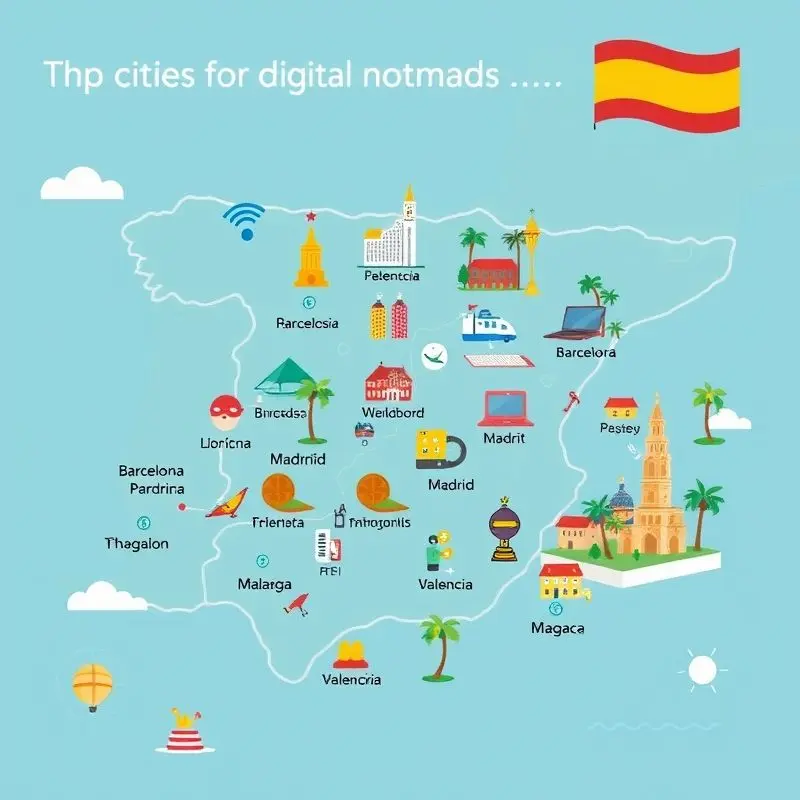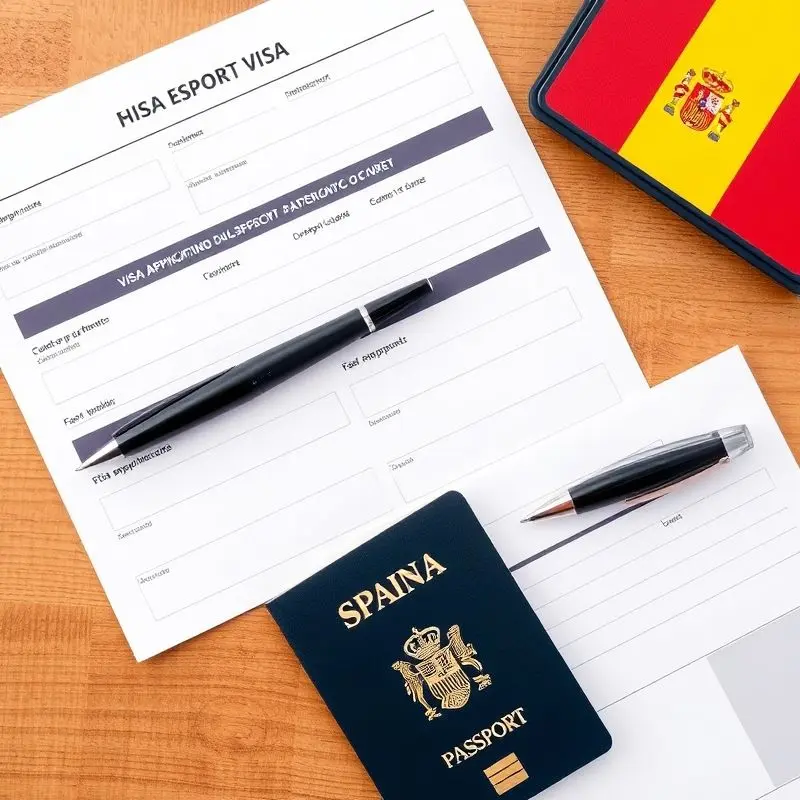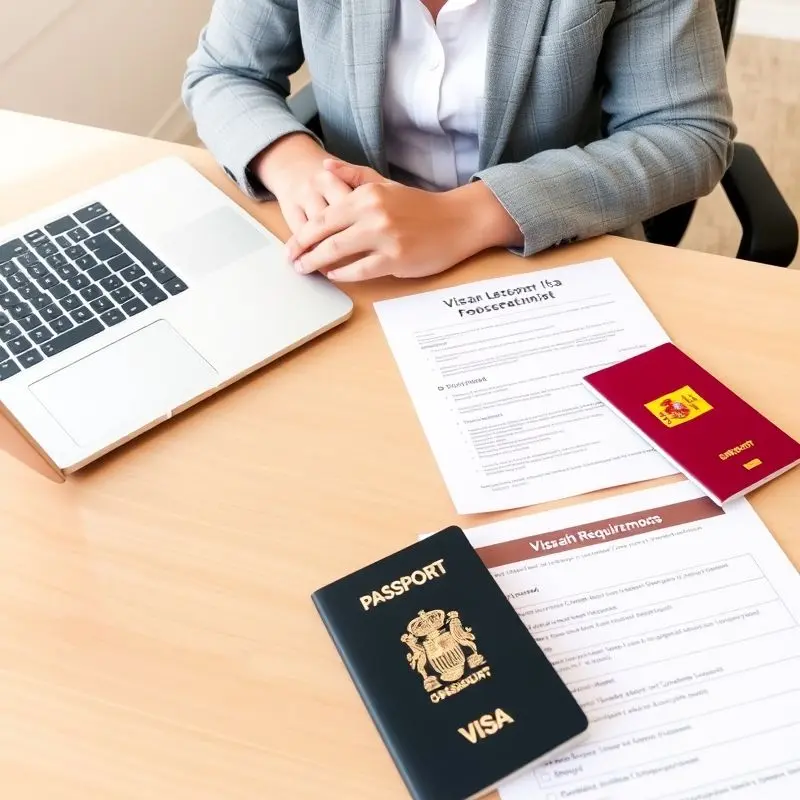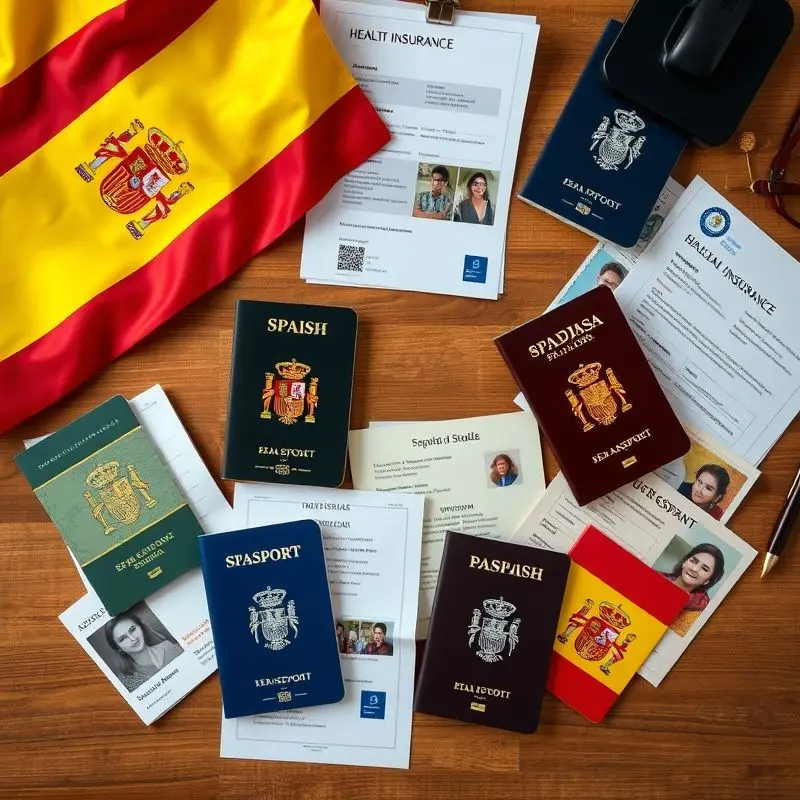If You Work Online, Spain Is Offering You the Chance to Live Legally and Beautifully in 2025

Introduction: Why Everyone’s Talking About Spain in 2025
Imagine sipping sangria in a seaside café while finishing up your workday. Sounds like a dream? Not anymore. Spain is officially calling all remote workers and freelancers across the globe with a golden opportunity in 2025—a legal, easy-to-apply-for Digital Nomad Visa.
The Rise of Digital Nomad Visas
Remote work isn’t a trend anymore—it’s a way of life. With millions switching to laptops and Wi-Fi as their “offices,” countries are racing to attract global talent. Enter Spain, with one of the most enticing and structured digital nomad visa programs in Europe.
Spain’s New Digital Nomad Program Explained
Launched under the Startup Act, Spain’s 2025 digital nomad visa allows you to live in this gorgeous country for up to 5 years, enjoying all the perks of Spanish life while legally working for foreign companies. Whether you’re a techie, designer, content creator, or consultant, this visa was made for you.
What is the Spain Digital Nomad Visa?
Origins of the Program
The visa is part of Spain’s push to boost entrepreneurship and remote-friendly policies. It caters specifically to non-EU freelancers and remote workers, providing them a legal and structured way to live and work in Spain long-term.
What Makes It Different from a Tourist Visa?
Unlike tourist visas, which restrict work and expire after 90 days, the Digital Nomad Visa:
- Grants 1 to 5 years of legal stay
- Allows remote income from international clients or companies
- Offers tax breaks and legal residency options
Who Qualifies for Spain’s Digital Nomad Visa?
Eligible Professions and Roles
To qualify, you should be:
- A remote employee working for a non-Spanish company
- A freelancer with international clients
- A digital entrepreneur with an online business
Nationality Requirements
This visa targets non-EU/EEA nationals. If you’re from the U.S., Canada, Australia, the UK, or other countries outside the EU, you’re eligible.
How to Apply for the Spanish Digital Nomad Visa
Documents You’ll Need
- Valid passport
- Proof of income (bank statements, contracts)
- Proof of remote employment or client agreements
- Background check (apostilled)
- Proof of health insurance
- Application form and visa fee
Where and How to Apply
You can apply:
- At a Spanish embassy/consulate in your home country
- While already in Spain on a tourist visa (yes, you can switch!)
How Long Does It Take?
The average processing time is 20–30 business days, but it may vary based on your location and completeness of your application.
Living in Spain as a Digital Nomad
Best Cities for Remote Workers in Spain
Barcelona
A perfect blend of beaches, coworking hubs, and culture. Barcelona is a top pick for creatives and tech workers.
Valencia
Affordable, sunny, and charming. Valencia is a hidden gem for digital nomads who want coastal vibes without the crowds.
Madrid
Spain’s capital offers world-class networking, cafes, and infrastructure.
Malaga
Ideal for sun-lovers who want a peaceful life with vibrant expat communities.
Average Cost of Living
- Rent: €600–€1,000/month
- Food & Groceries: €200–€400/month
- Coworking Spaces: €100–€250/month
Internet Connectivity & Workspaces
Spain has solid internet (average speed 100–300 Mbps). Coworking spaces, like Impact Hub and WeWork, are found in all major cities.
The Benefits of Spain’s Remote Worker Program
Legal Residency in Europe
Live legally in Spain and travel freely across the Schengen Zone (26 EU countries).
Access to Healthcare and Local Services
You get access to one of the best healthcare systems in Europe and can open a bank account, rent long-term, and register for services.
Affordable, Beautiful Lifestyle
Spain offers a Mediterranean lifestyle, delicious cuisine, vibrant culture, and low cost of living compared to other Western countries.
Challenges to Consider
Tax Complications
Navigating international tax laws can be tricky. Hiring a local accountant is highly recommended.
Language Barrier
Although English is widely spoken in cities, learning basic Spanish will go a long way.
Visa Renewal and Duration Limits
The initial visa lasts 1 year but can be extended to 5. Keep track of renewal requirements and paperwork.
Why 2025 is the Best Year to Move
Spain in 2025 is buzzing. With the global economy bouncing back and remote work normalized, there’s never been a better time to take the leap.
Post-COVID Travel Boom
Spain’s tourism and infrastructure have adapted perfectly for remote workers.
Political and Economic Stability in Spain
With favorable government policies and a booming digital ecosystem, Spain is a safe and smart move.
Financial Tips for Living in Spain
Managing Currency Exchange and Fees
Use fintech apps like Wise or Revolut to save on transfer fees.
Using Local Banks
Banks like BBVA and CaixaBank offer expat-friendly services.
Budgeting Tips for Expats
Use apps like Fintonic and N26 to manage spending and budgeting on the go.
Must-Have Apps and Tools for Digital Nomads in Spain
- Glovo – for food and grocery delivery
- Cabify – for ride-sharing
- Duolingo – to learn Spanish
- Meetup – to find expat communities
- Slack/Zoom – for remote work
- Notion – to stay productive
Final Checklist Before You Move
- Passport valid for 12+ months
- Remote work contract/client agreements
- Health insurance
- Proof of income
- Visa application forms
- Background check
- Flight and accommodation bookings
- Spanish SIM card and bank account plans
Conclusion: Your Dream Life in Spain Awaits
2025 is your year. Spain is more than paella and sunsets—it’s opportunity, freedom, and lifestyle rolled into one. If you’re a remote worker ready for a fresh start, this is your sign. Don’t just work remotely—live remotely in one of the world’s most beautiful countries.
FAQs
1. Can I bring my family on the Digital Nomad Visa?
Yes, your spouse and children can join as dependents under the same application.
2. What if I change employers while in Spain?
You can change jobs, but the new employer must also be non-Spanish, and your income must remain above the threshold.
3. Do I need to know Spanish to live there?
It helps, but it’s not mandatory. Most locals in major cities speak basic English.
4. Is health insurance mandatory?
Absolutely. You must have private or public health insurance that covers you during your stay.
5. Can I travel to other EU countries with this visa?
Yes! The visa allows you free movement within the Schengen Zone for up to 90 days per 180-day period.





